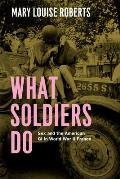Chris Bryant's Parliament: the Biography, Vol. 1 (Doublday) is reviewed in the New Statesman. "Bryant’s volume runs from this period to the establishment of the Imperial Parliament following the union between Great Britain and Ireland in 1801. It is admirably comprehensive (the author wisely resisted the temptation to add to the glut of “short guides”) and written in the kind of lucid, elegant prose now rarely associated with our elected representatives."
Dissent Magazine has a review of Thomas Piketty's Capital in the Twenty-First Century translated by Arthur Goldhammer (Belknap Press).
The Federal Lawyer has published its April book reviews. One can find a review of Richard Striner's Lincoln and Race (Southern Illinois University Press) and Brian R. Dirck's Abraham Lincoln and White America (University Press of Kansas), as well as reviews for Fraternity by Diane Brady (Spiegel & Grau), Roger Williams and the Creation of the American Soul: Church, State, and the Birth of Liberty by John Barry (Viking), and Lobbyists at Work by Beth Leech (Apress). All reviews can be found here.
NPR has a story on All Things Considered covering a couple of books relevant to the upcoming Civil Rights Act anniversary: Seth Cagin and Phillip Dray's We Are Not Afraid: The Story of Goodman, Schwerner, and Chaney, and the Civil Rights Campaign for Mississippi (Nation) and Frances Stonor Saunders's The Cultural Cold War: The CIA and the World of Arts and Letters (New Press).
"In 1950 the CIA created the Congress for Cultural Freedom, whose mission was to use the arts to "nudge the intelligentsia of Western Europe away from its lingering fascination with Marxism and Communism towards a view more accommodating of 'the American way.' " ...
The Congress for Cultural Freedom also used various foundations to act as fronts in funding exhibitions, international conferences, public performances and grants for artists. The roll call of beneficiaries — unwitting, to various degrees — included Mary McCarthy, Leonard Bernstein and Arthur Schlesinger. Over the years, Saunders writes, this surreptitious support system pervaded the production of a good deal of high culture, so that "[w]hether they liked it or not, whether they knew it or not, scores of Western intellectuals were now roped to the CIA by an 'umbilical cord of gold.' "
 Make sure to take a look at several reviews on H-Net. The collected volume Beyond the Border: Tensions across the Forty-Ninth Parallel in the Great Plains and Prairies (McGill-Queen's University Press) edited by Kyle Conway and Timothy Pasch is reviewed, as is Edward Garvey Miller's Misalliance: Ngo Dinh Diem, the United States, and the Fate of South Vietnam (Harvard University Press) here. H-Net also adds a review of Dave St. Aubyn Gosse's Abolition and Plantation Management in Jamaica: 1807-1838 (University of West Indies Press).
Make sure to take a look at several reviews on H-Net. The collected volume Beyond the Border: Tensions across the Forty-Ninth Parallel in the Great Plains and Prairies (McGill-Queen's University Press) edited by Kyle Conway and Timothy Pasch is reviewed, as is Edward Garvey Miller's Misalliance: Ngo Dinh Diem, the United States, and the Fate of South Vietnam (Harvard University Press) here. H-Net also adds a review of Dave St. Aubyn Gosse's Abolition and Plantation Management in Jamaica: 1807-1838 (University of West Indies Press).In The Wall Street Journal Bill White's America's Fiscal Constitution: Its Triumph and Collapse is reviewed.
 The Washington Post reviews Matt Taibbi's The Divide: American Injustice in the Age of the Wealth Gap (Random House). Other perspectives on the book can be found here in The New York Times, here in an interview with the author on NPR, and here in the Los Angeles Times.
The Washington Post reviews Matt Taibbi's The Divide: American Injustice in the Age of the Wealth Gap (Random House). Other perspectives on the book can be found here in The New York Times, here in an interview with the author on NPR, and here in the Los Angeles Times. Lastly, The Nation has a review of What Soliders Do: Sex and the American GI in World War II France by Mary Louise Roberts (University of Chicago Press).
Lastly, The Nation has a review of What Soliders Do: Sex and the American GI in World War II France by Mary Louise Roberts (University of Chicago Press)."Roberts draws upon extensive sources, including diaries, police reports and court-martial transcripts, to examine the presence of American forces in France from 1944 to 1946. She contends that the sexual conduct of US servicemen in war should be moved from a historical footnote to “the center of the story.” Loaded with symbolism, sexual behavior in this context plays an important role in shaping the political and diplomatic negotiations of power between countries."
